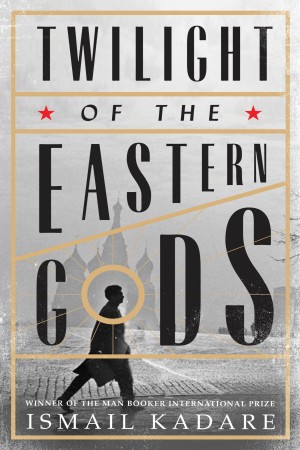You have no items in your cart. Want to get some nice things?
Go shopping In an era of self-publishing, self-publicising and social media onanism, the idea that a piece of writing might be censored before arriving in the public domain seems strange enough, but the concept of state-run censorship is positively archaic.
In an era of self-publishing, self-publicising and social media onanism, the idea that a piece of writing might be censored before arriving in the public domain seems strange enough, but the concept of state-run censorship is positively archaic.
The idea that a superpower could today manage to ban a book in any effective way seems impossible. Google may remove the odd link from its servers, with a vague nod towards the “right to be forgotten”, but anyone hoping to definitively hide information once it becomes publicly available faces a terrifyingly difficult task.
World superpowers can no longer keep their military secrets in the bag, never mind censor books. If Edward Snowden can publish the CIA’s dirty laundry for the world to see, the state censorship of literature seems a quaint thing of the past. No longer would we tolerate the government telling us what we can or cannot read simply because we are so used to being able to read anything — at any place, at any time.
It is therefore a strange and appropriately dusky world that readers enter when they start reading the first pages of Ismail Kadare’s Twilight of the Eastern Gods. Set at the end of the 1950s in Soviet Moscow, the writing instantly conjures a dreamlike sea of contradictions.
Previously unpublished in English, this 1978 novel offers the Albanian Booker Prize winner’s unique perspective on the literary machinery of Khrushchev’s Soviet Union. The narrator is a foreign national enrolled at the famed Gorky Institute, an organisation designed to house a disparate group of Soviet bloc writers and cultivate a Communist literary style.
Modelled on Ismael’s own experience as a student at the Gorky Institute, the writing maintains a surface link to reality — but, as with all of Kadare’s wonderfully fablustic novels, it is deeply steeped in the stuff of myths and stakes a healthy disregard for mere realism.
As a student at the institute from 1958 -1960, Kadare reportedly hated the curriculum of social realism and Soviet propaganda. This shines through in the gloomy descriptions of his fellow students, the dichotomy between writerly support and censorship, and the claustrophobic atmosphere of the institute.
‘Hanging over us all is a cloud of discouragement,’ he said, lowering his voice on the last words as if he already regretted having uttered them.
A cloud of discouragement…
The other students flit through the corridors of the institute, seemingly caught between desire for writerly expression and need for gossip about the latest denunciations, disapproval and exiles.
Throughout the short novel, Kadare reinforces his position as an outsider, both culturally and politically. The relationship between Moscow and Tirana hangs over the narrator’s head at all times, along with the threat of imminent expulsion. The narrator never seems entirely happy to be in the thriving centre of the Soviet Union — the lack of mythos, the contrast between Balkan and Slavic folklore, affects the narrator most keenly: he perceives a certain drabness compared with legends and timelessness of his Albanian homeland.
Perhaps my disinclination derived from the disappointment I had felt on first seeing the Kremlin’s rust-coloured bastions… the somnolent, placid walls of the Kremlin gave off a ruddy cheerfulness that sterilised the imagination. No dashing horseman with moonlight glinting on his steel visor would bring any message to the gates of this castle.
And it is language itself that is behind most of the contradictions that support the institute. The grand Soviet project of uniting peoples throughout the continent and the world is pitted against the death rattle of national languages overwhelmed by Russian supremacy.
In the word soup of already dead and gravely sick languages, a few Russian expressions floated to the surface… ‘I can see my language before me, like a ghost!’ one kept screaming, as if he had just woken up in fright.
Despite its weighty themes, however, the novel lacks the scale of Kadare’s other works. Compared to The Siege or Palace of Dreams, this novel focusses more tightly on the minutiae of Moscow life. While longing for the far-off myths of Albania, Twilight of the Eastern Gods does little in the way of examining the duality between the everyday and the mythic so characteristic of Kadare’s later fiction.
A subplot revolving around the ostracisation of Boris Pasternak adds little to the story, save to reinforce the feeling that the author himself would be only too happy to suffer the same fate if it meant leaving Moscow. This in contrast to Kadare’s Albanaian novels, in which protagonists seem to retain a dogged loyalty to the homeland and never seem to seriously question leaving Albania, no matter how totalitarian dictatorship becomes.
Despite its shortcomings, the novel provides a refreshing glimpse into Khrushchev-era Moscow without the usual political lens that invariably clouds discussion of that period. You get the sense that Kadare is not too interested in launching a scathing political attack or crafting social-realist propaganda, but simply wants to tell a story — a task which he is admirably equipped to do and which make this novel a pleasure to read.

About Lochlan Bloom
Lochlan Bloom is a British novelist, screenwriter and short story writer. The BBC Writersroom describes his writing as ‘unsettling and compelling… vivid, taut and grimly effective work’. He is the author of the novel The Wave as well as the short fiction pieces – Trade and The Open Cage. He has written for IronBox Films, BBC Radio, Slant Magazine, Litro Magazine, Porcelain Film, EIU, H+ Magazine and Calliope, the official publication of the Writers’ Special Interest Group (SIG) of American Mensa, amongst others




